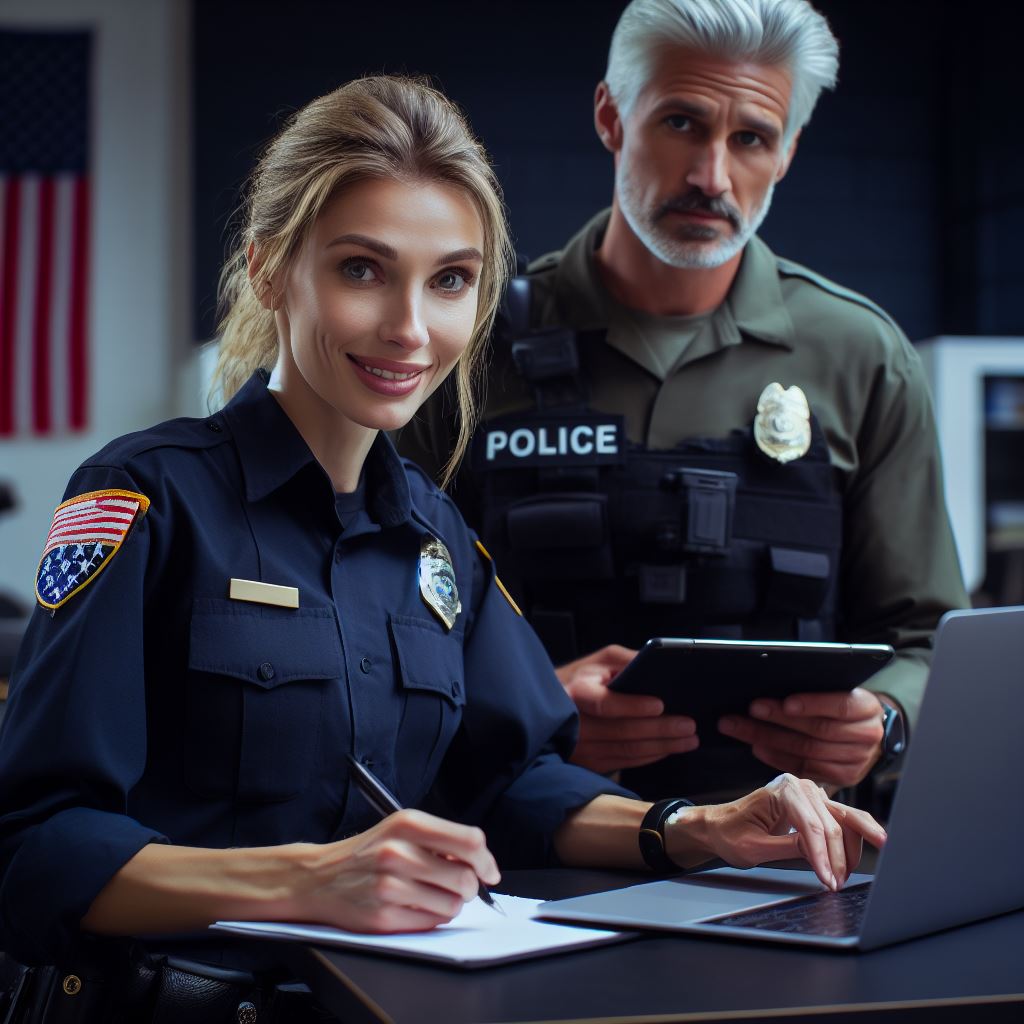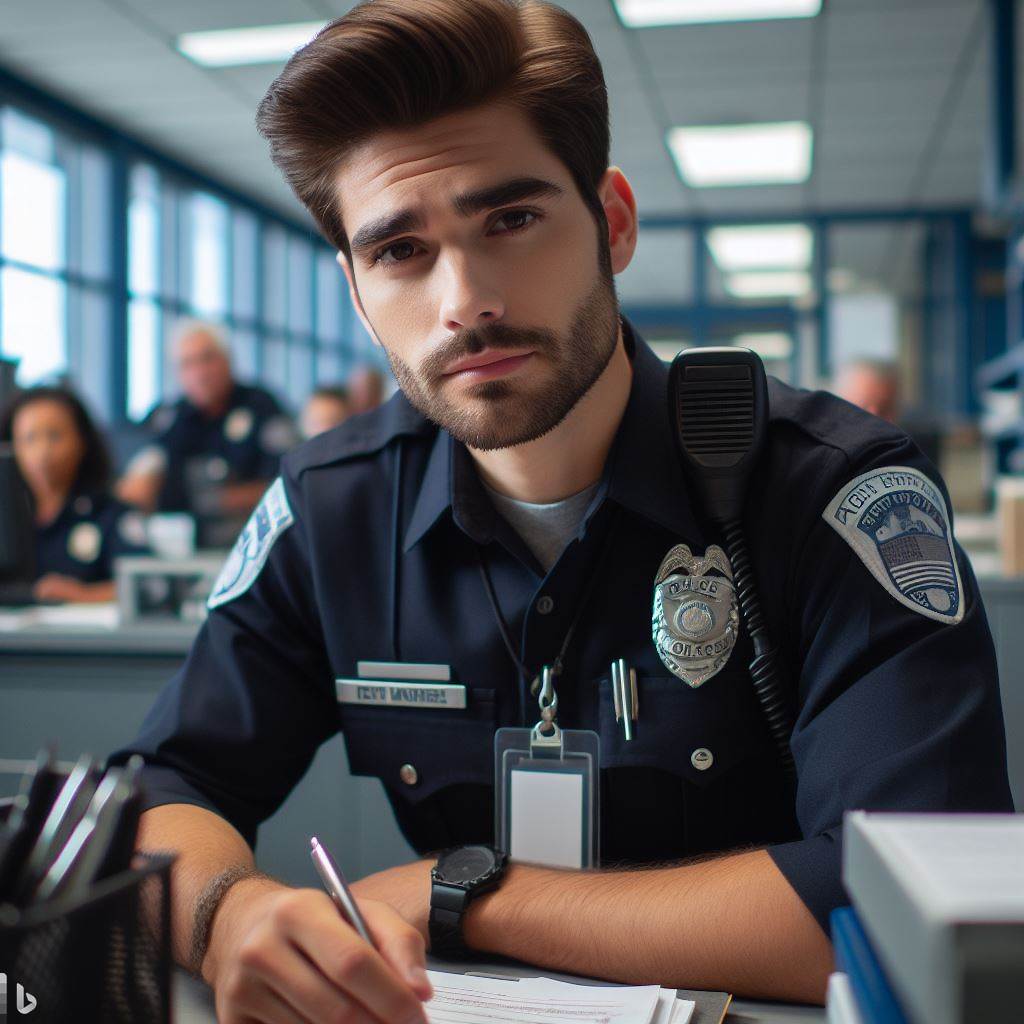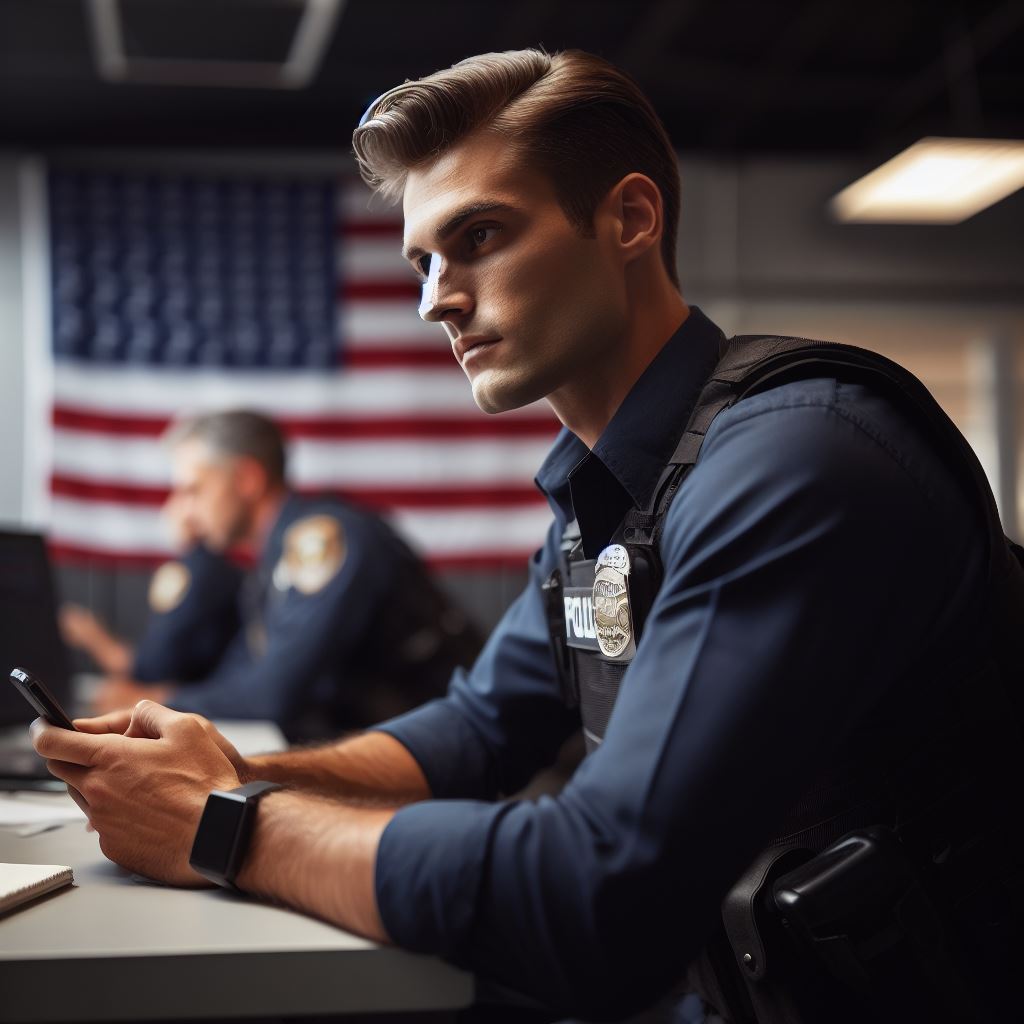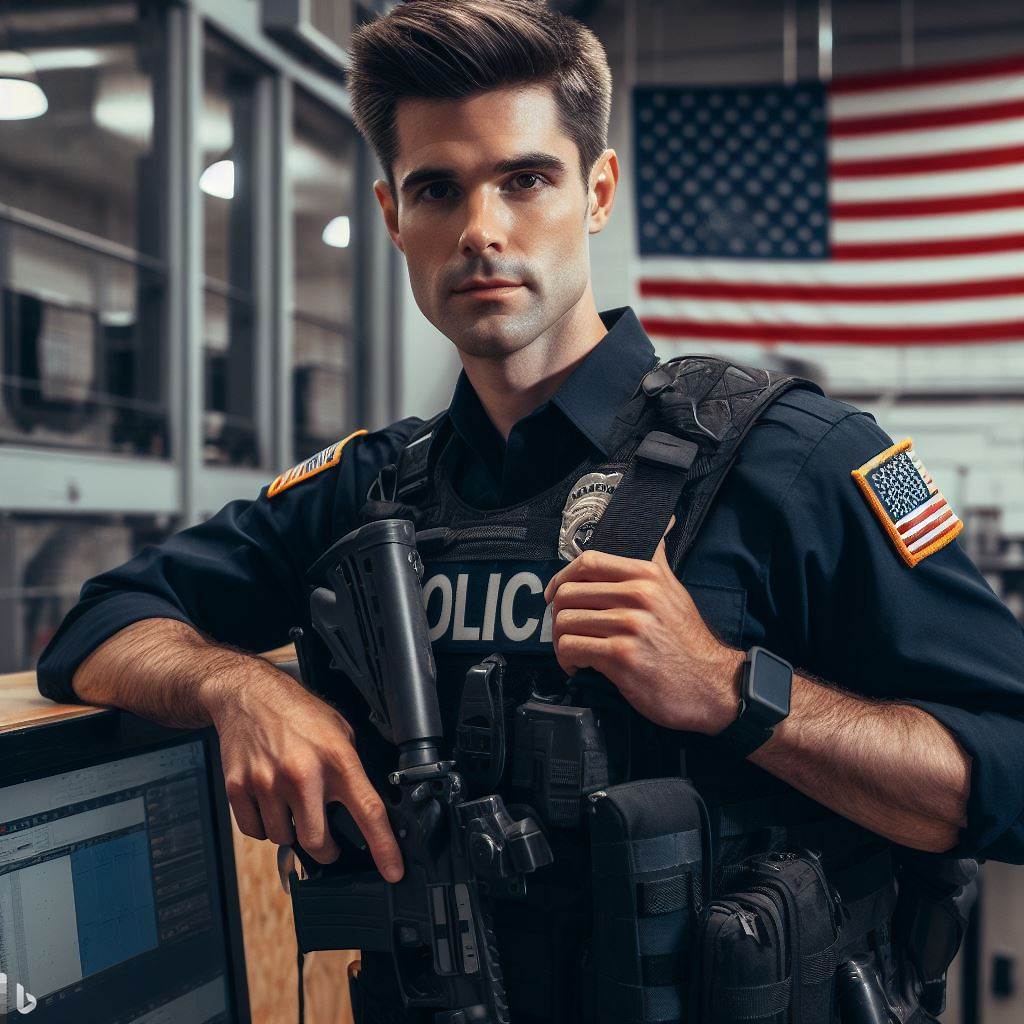Introduction
Embarking on a crucial exploration, we delve into the multifaceted world of the duties and responsibilities that define a US police officer’s role.
This introductory section aims to set the stage for a comprehensive understanding of the profound impact these individuals have on society.
As we navigate through the layers of their responsibilities, it becomes apparent that a nuanced comprehension of a police officer’s role is essential.
This understanding is not merely about job descriptions; it’s about recognizing the integral part they play in maintaining order, upholding justice, and safeguarding communities.
The importance of this exploration extends beyond awareness—it is a call to grasp the intricate fabric of social dynamics.
Join us in this journey as we unravel the responsibilities that shape the daily lives of US police officers, recognizing the significance of their contributions to the intricate tapestry of our society.
Overview of Police Officer’s Role
Explanation of the primary purpose of police officers in the United States
Police officers play a vital role in society, serving as the frontline defenders of law and order. Their primary purpose is to protect the lives and property of citizens while safeguarding public order.
Maintaining public safety is a core responsibility that they fulfill by responding promptly to emergency calls and providing necessary assistance.
Role in maintaining public safety and order
In order to deter crime and ensure public safety, police officers regularly patrol assigned areas.
By maintaining a visible presence, they deter potential criminals and provide a sense of security to the community.
Building positive relationships with community members is another important aspect of their role, as it helps establish trust and encourages cooperation.
Another crucial duty of police officers is the enforcement of laws and regulations.
They have the authority to arrest individuals suspected of committing crimes, based on evidence they gather during investigations.
This process includes interviewing witnesses, victims, and suspects to collect pertinent information and establish the facts of a case.
Enforcement of laws and regulations
Documentation plays a crucial role in law enforcement, and police officers are required to prepare detailed reports for legal purposes.
These reports serve as an official record of incidents and are vital for documenting evidence, presenting cases in court, and maintaining accurate records.
In many instances, police officers are also called upon to testify in court proceedings.
They must present evidence professionally and provide testimony that is accurate, reliable, and credible. Their role is essential for ensuring a fair and just legal process.
Furthermore, police officers have the authority to execute search warrants and seize contraband or evidence, as authorized by law.
These actions are taken to support further investigations and secure evidence that plays a crucial role in the legal process.
Most importantly, the duties and responsibilities of a police officer in the United States are multifaceted. They are entrusted with the task of protecting lives, maintaining public safety, and enforcing laws.
By fulfilling these responsibilities, police officers contribute to the well-being and security of the communities they serve.
Read: Mental Health and Firefighters: Addressing PTSD Risks
Law Enforcement Duties
Patrol duties and responsibilities
- Maintaining visible presence in communities
- Responding to emergency calls and incidents
- Conducting traffic stops and issuing citations.
Investigative duties
- Gathering evidence
- Interviewing witnesses and suspects
- Collaborating with other law enforcement agencies
Arrest and detainment
- Responsible for apprehending and arresting individuals
- Ensuring proper documentation and legal procedures during arrests
- Transporting suspects to the appropriate facilities
Law Enforcement Duties
Police officers have a wide range of duties and responsibilities within the criminal justice system. In this blog section, we will delve into the law enforcement duties that they must fulfill on a regular basis.
Patrol duties and responsibilities
Maintaining a visible presence in communities is a key responsibility of police officers. This presence helps deter criminal activity and provides reassurance to the public.
Additionally, officers must respond promptly to emergency calls and incidents to ensure public safety. They are often the first on the scene, and their quick actions can potentially save lives.
Furthermore, conducting traffic stops and issuing citations for violations help maintain order on the roads and promote safe driving habits.
Investigative duties
Gathering evidence is crucial to solving crimes and bringing offenders to justice. Police officers must meticulously collect and preserve physical evidence, such as fingerprints and DNA samples.
They also play a significant role in interviewing witnesses and suspects to obtain valuable information that can aid in investigations.
Moreover, collaboration with other law enforcement agencies is essential to effectively address complex criminal cases that may span multiple jurisdictions.
Arrest and detainment
One of the primary responsibilities of police officers is to apprehend and arrest individuals involved in criminal activities.
They must possess the necessary training and skills to safely apprehend suspects while minimizing harm to themselves, the individuals being arrested, and the public.
Officers must also ensure that proper documentation and legal procedures are followed during arrests to uphold the rights of the accused.
Once individuals are apprehended, police officers are responsible for safely transporting them to the appropriate correctional facilities to await their trial or other legal proceedings.
In fact, police officers carry out a variety of law enforcement duties that are crucial for maintaining public safety and upholding the law.
Whether it’s patrolling communities, investigating crimes, or making arrests, their active involvement enables them to protect and serve the communities they are sworn to safeguard.
Read: Advancements in Firefighting Gear: U.S. Innovations
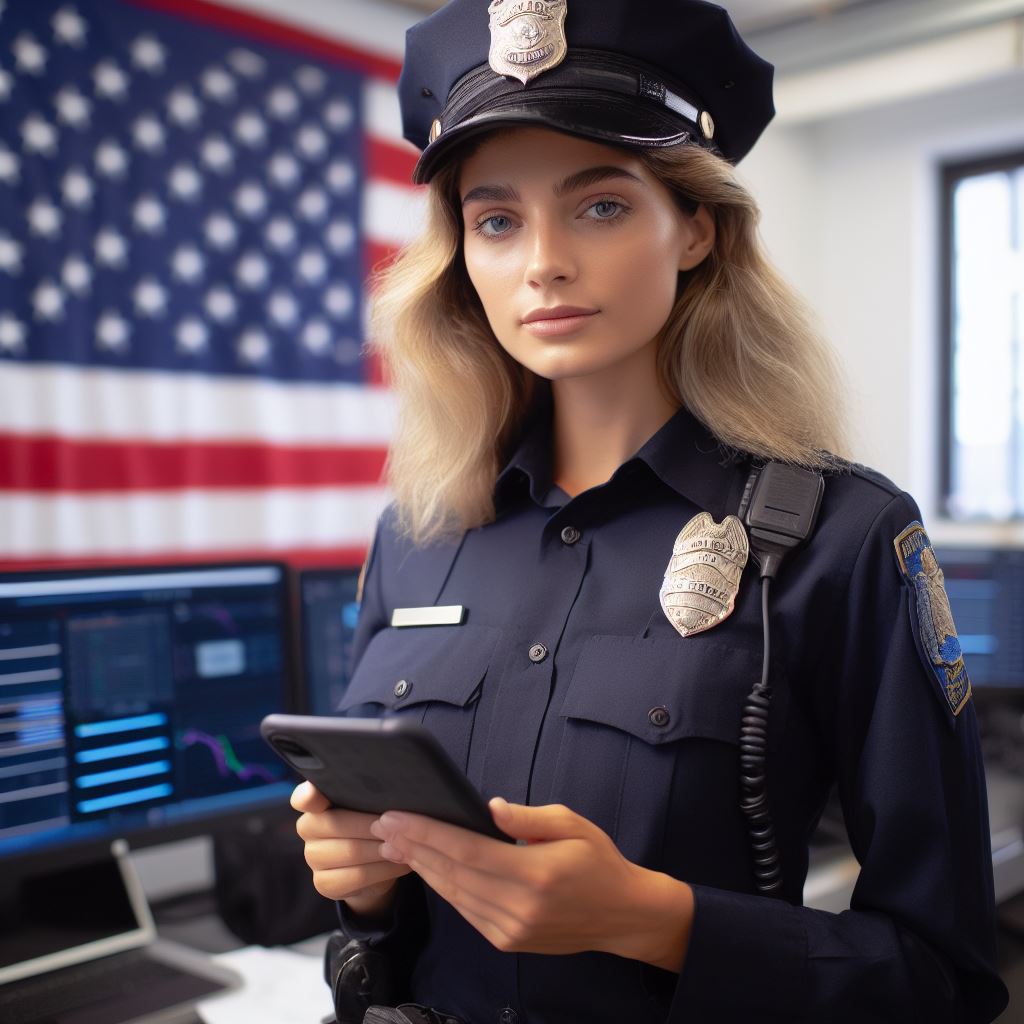
Public Safety and Community Engagement
Providing assistance to the public
- Police officers play a crucial role in assisting individuals who find themselves in distress or danger.
- They are trained to respond quickly and effectively to emergency situations, ensuring public safety.
- Additionally, officers offer guidance and support to individuals seeking help or facing challenging circumstances.
Relationship building with communities
Assisting individuals in distress or danger
Police officers fulfill their duty by providing immediate assistance to individuals in distress or danger. They prioritize public safety and work towards resolving critical situations.
Educating the community on crime prevention
Officers play an active role in educating the community on crime prevention strategies and promoting safety awareness. They conduct workshops and seminars to equip citizens with valuable knowledge.
Resolving conflicts and disputes
Police officers act as mediators to resolve conflicts and disputes within the community. They maintain peace and foster understanding to prevent escalation and maintain harmony.
Transform Your Career Today
Unlock a personalized career strategy that drives real results. Get tailored advice and a roadmap designed just for you.
Start NowParticipation in community events and programs
Active participation in community events and programs allows officers to engage with residents, understand their concerns, and address issues affecting the community.
Establishing trust and rapport with community members
Building trust is fundamental to effective policing. Officers prioritize establishing strong relationships with community members to foster cooperation and mutual respect.
Promoting collaboration between law enforcement and citizens
Officers work towards promoting collaboration and teamwork between law enforcement agencies and the community, ensuring a collective effort in maintaining public safety.
Generally, police officers have essential duties and responsibilities towards public safety and community engagement.
They provide assistance to individuals in distress, educate the community on crime prevention, and actively resolve conflicts.
Moreover, officers actively participate in community events to establish trust and rapport with community members.
By promoting collaboration between law enforcement and citizens, they ensure the collective well-being of the community.
Read: Fire Department Hierarchies: From Rookie to Chief
Upholding the Law and Protecting Rights
Ensuring constitutional rights of individuals
A police officer’s role extends beyond simply enforcing the law. It encompasses ensuring the constitutional rights of individuals and maintaining professional conduct and ethics.
A key responsibility of police officers is to ensure the protection of suspects’ rights during arrests and interrogations. They must treat individuals with respect and dignity, adhering to the principles of due process.
During criminal investigations, police officers play a crucial role in implementing due process.
They collect evidence, conduct interviews, and follow proper procedures to ensure that rights are upheld, and justice is served.
Maintaining professional conduct and ethics
Professional conduct and ethics are integral to the role of a police officer. They are expected to adhere to a code of ethics and moral standards, which guides their behavior and interactions with the community.
Impartiality and fairness are essential qualities for police officers. They must make decisions objectively, without bias or favoritism, ensuring that justice is served for all individuals involved in a situation.
Furthermore, police officers are responsible for avoiding discrimination and abuse of power.
They must treat everyone equally, irrespective of their race, gender, or socioeconomic background. The abuse of power can erode public trust and undermine the credibility of law enforcement agencies.
By upholding the law and protecting the rights of individuals, police officers contribute to the overall safety and well-being of society.
Their actions not only serve as a deterrent for crime but also help build trust and confidence in the justice system.
It is important for police departments to provide ongoing training and support to officers in understanding and implementing constitutional rights and ethical standards.
This ensures that officers are equipped with the necessary skills and knowledge to fulfill their duties effectively.
Most importantly, police officers have a vital role in upholding the law and protecting the rights of individuals.
By ensuring constitutional rights and maintaining professional conduct and ethics, they contribute to a just and fair society.
Read: Volunteer Firefighters: The Unsung Heroes in the U.S.
Conclusion
Our in-depth exploration, we’ve unraveled the intricate tapestry of the key duties and responsibilities that define a US police officer’s role.
It’s essential to appreciate the challenging nature of this responsibility, recognizing the nuanced balance they must strike to maintain order and justice in society.
The importance of understanding the multifaceted nature of their duties extends beyond awareness—it’s about fostering empathy and recognizing the complexities inherent in their daily tasks.
As we recapitulate the roles discussed, a profound call to action emerges. It is not only about appreciation but active support and collaboration with law enforcement.
In our communities, let’s forge partnerships with our police officers, contributing to a safer, more secure environment.
This encouragement is not just a conclusion but an invitation to unite, appreciating the sacrifices and efforts made by those who uphold the law, ensuring the well-being of our society.
[E-Books for Sale]
The Big Book of 500 High-Paying Jobs in America: Unlock Your Earning Potential
$19.99 • 500 High-Paying Jobs • 330 pages
Explore 500 high-paying jobs in America and learn how to boost your career, earn more, and achieve success!
See All 500 High-Paying Jobs of this E-Book
1001 Professions Without a Degree: High-Paying American Jobs You Can Start Now
$19.99 • 1001 Professions Without a Degree • 174 pages
Discover 1001 high-paying jobs without a degree! Unlock career tips, skills, and success strategies for just $19.99!

